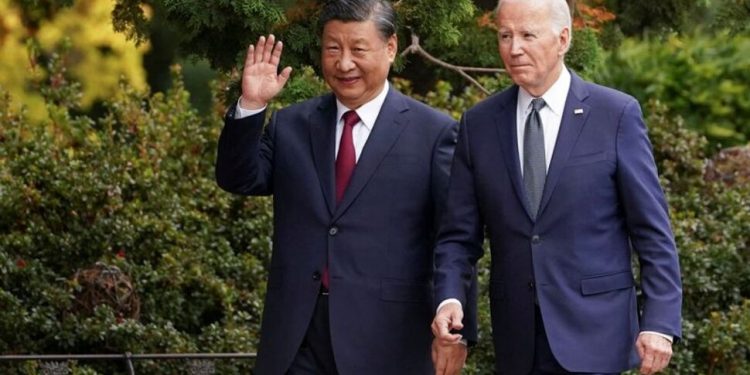The world is still at a loss to comprehend why US President Joe Biden rubbed China’s President Xi Jinping the wrong way after their much awaited and much needed meeting took place in San Francisco. It was expected that the meeting would result in a thaw in US-China relationship that would benefit the rest of the world both economically and politically. But, almost out of the blue Biden called Xi a dictator. The whole world knows Xi is certainly a dictator and Biden had no need to state it so explicitly when the main purpose of the high profile meeting was to prepare the ground for rapprochement for mutual benefits in the backdrop of their strained, acrimonious relations. It’s indeed a serious question why Biden made this seemingly diplomatic blunder.
China hit back immediately saying the remarks were absurd and a provocation, an unexpected flare-up following attempts by both sides to reduce friction.
In fact, Biden made his comments just a day after US Secretary of State Antony Blinken had completed a visit to China aimed at stabilizing relations that Beijing says are at their lowest point since formal ties were established in 1979.
There is no gainsaying that Xi has become China’s most powerful leader since Mao Zedong after securing a precedent-breaking third term as president in March and head of the Communist Party in October. He presides over a one-party system that many human rights groups, Western leaders and academics call a dictatorship because it lacks an independent judiciary, free media or universal suffrage for national office. Critics of Xi and his party are censored online and risk detention and even death off line.
Biden’s remarks, soon after his meeting with Xi, were some of his most direct. Predictably, Chinese foreign ministry spokesperson Mao Ning called the remarks “extremely absurd” and “irresponsible” and said they seriously violated facts, diplomatic protocol and China’s political dignity.
Experts say a behind-the-scenes power struggle drove Xi all the way to California to meet face-to-face with his US counterpart for the first time in a year. Xi’s summit with Biden came three months after the Chinese Communist Party’s annual summer conclave where the current party leadership, led by General Secretary Xi, was given some harsh advice from party seniors about China’s economy. The retired but influential elders also spoke on China’s diplomatic issues, specifically in relation to the US. They are known to have stressed that a stable China-US relationship laid the groundwork for today’s prosperous China and that the current leadership should avoid putting those ties under strain.
Xi’s visit to the US and meeting with Biden is being interpreted as a gesture to primarily honor what the elders said at the meeting in August at the Beidaihe seaside resort. The trip also came after an old friend and ally – son of former powerful Chinese leader and President Liu Shaoqi – was able to implicitly criticize Xi’s “autocratic” regime by writing a paper describing Mao Zedong.
Xi and Biden spent about four hours together, including a two-hour discussion, on the sidelines of the Asia-Pacific Economic Cooperation summit held in San Francisco.
Biden’s direct remarks slamming Xi’s style of functioning sound all the more strange since it is he who told Xi that he valued their conversation because he thought it is paramount that they understand each other clearly, “leader to leader,” with no misconceptions or miscommunication. He even went to the length of saying that they have to ensure that competition does not lead to conflict.
Xi in turn not only concurred, but said he was still of the view that major-country competition is not the prevailing trend of current times and cannot solve the problems facing China and the US or the world at large.
It may not be difficult to understand that despite these politically correct statements and posturing, there was a trust deficit. For, neither leader was smiling during the exchange, which indicated the relationship would not ease any time soon.
However, some progress was made. The two sides agreed to reopen communications between their militaries.
Biden knew and possibly wanted to take advantage of Xi’s desperation for the meeting for his domestic compulsion. He also has to take care of his constituency for the coming election and a little anti-Xi noise would help in countering Republican propaganda of the US coming close to China.
It could also be possible both leaders may have had a tacit understanding which is why China’s reaction to Biden’s comments is tempered by the optimism that the interests of the two countries cannot be harmed by agent provocateur.






































